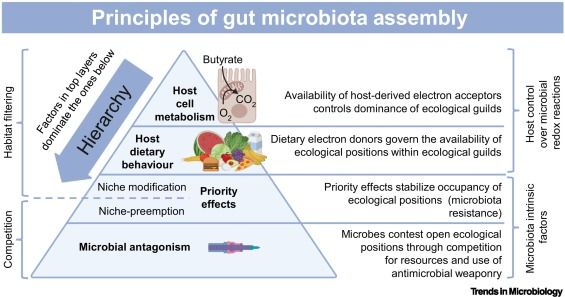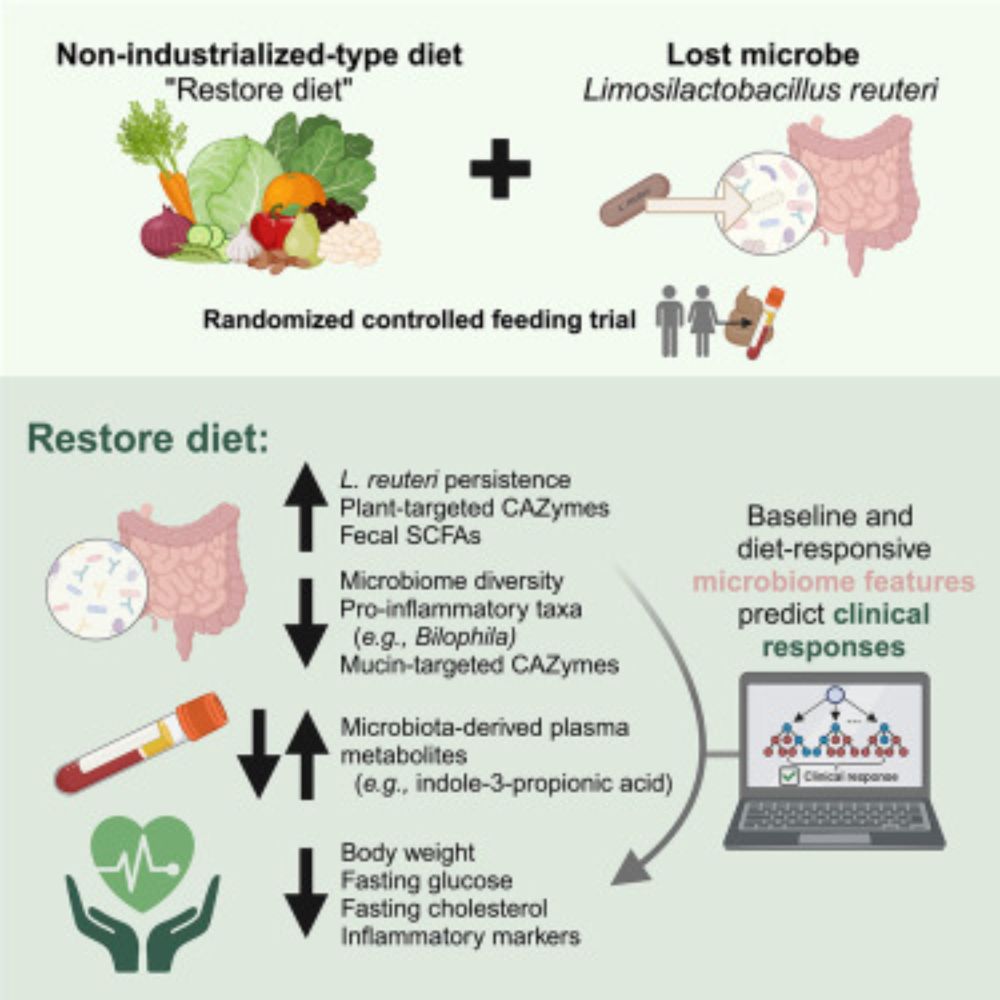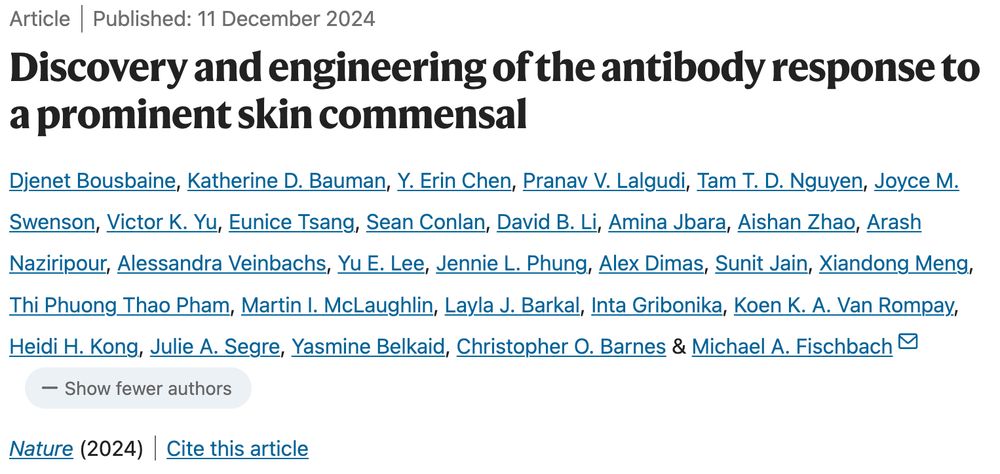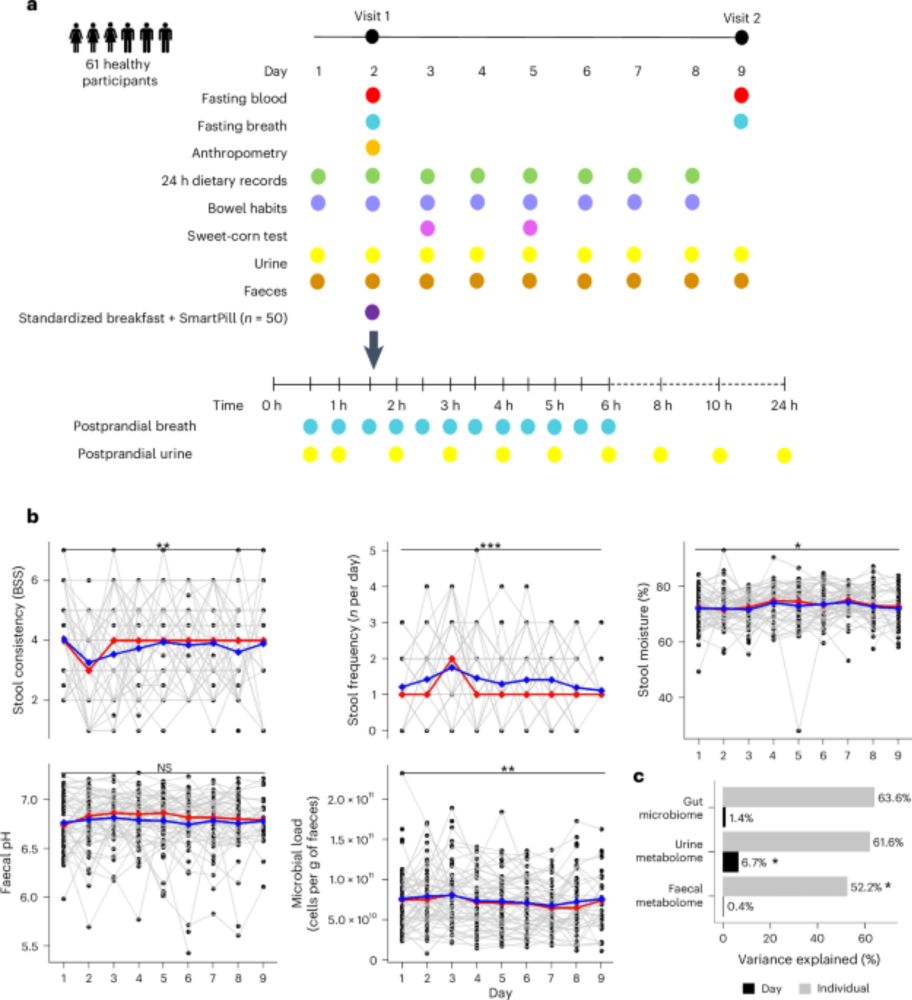
Learn more: bit.ly/CAMRIpostdoc

Learn more: bit.ly/CAMRIpostdoc
🦠Exploring how the microbiome influences fertility & preconception health
🚨Offering a systems-level lens through which to understand & improve reproductive health by linking diet, immunity, metabolism & hormonal signaling
Read more👉 doi.org/p7cw

🦠Exploring how the microbiome influences fertility & preconception health
🚨Offering a systems-level lens through which to understand & improve reproductive health by linking diet, immunity, metabolism & hormonal signaling
Read more👉 doi.org/p7cw
"different fermentation products [profiles] released [vary a lot more depending on] microbiome composition [than] daily production of bacterial biomass + release of fermentation products" "diet not microbiota [is] dominant factor for fermentation product harvest"
"different fermentation products [profiles] released [vary a lot more depending on] microbiome composition [than] daily production of bacterial biomass + release of fermentation products" "diet not microbiota [is] dominant factor for fermentation product harvest"

Here, we describe these emerging tools & their utility to both basic & translational microbiome research. @natmicrobiol.nature.com
www.nature.com/articles/s41...

Here, we describe these emerging tools & their utility to both basic & translational microbiome research. @natmicrobiol.nature.com
www.nature.com/articles/s41...
Co-authored by the Senior Editors, it aims to highlight current challenges in the field of environmental and host-associated microbiome research and provides a blueprint for contemporary studies of the microbiomes.
microbiomejournal.biomedcentral.com/articles/10....

Co-authored by the Senior Editors, it aims to highlight current challenges in the field of environmental and host-associated microbiome research and provides a blueprint for contemporary studies of the microbiomes.
microbiomejournal.biomedcentral.com/articles/10....




LDL cholesterol ↓17%
fasting glucose ↓6%
CRP ↓ 14%
www.cell.com/cell/fulltex...

LDL cholesterol ↓17%
fasting glucose ↓6%
CRP ↓ 14%
www.cell.com/cell/fulltex...


@naturemicrobiol.bsky.social 🍾 showing that gut physiology and environment are factors explaining substantial variations in human gut #microbiome composition and #metabolism🦠
Fantastic work Procházková et al. 👏
www.nature.com/articles/s41...


See below for @suguru-nishijima.bsky.social 's thread on the preprint!
#microsky #microbiome
See below for @suguru-nishijima.bsky.social 's thread on the preprint!
#microsky #microbiome

